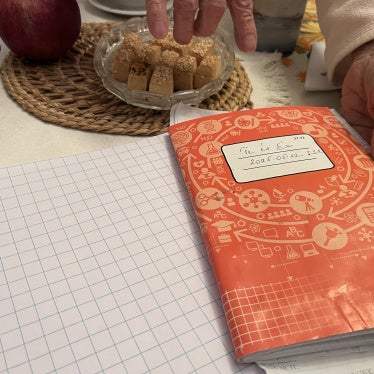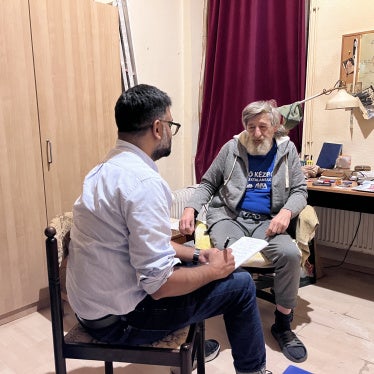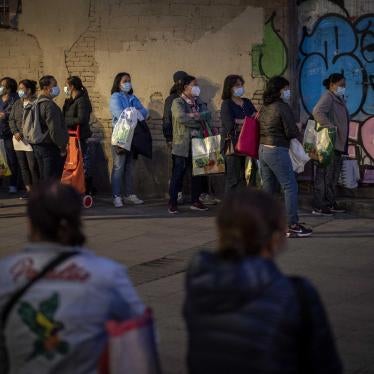Dear World Bank Executive Directors:
We are writing to express our serious concern regarding the
pending payment of the next $100 million tranche of the World
Bank's coal sector structural adjustment loan to the Russian
Federation.
to urge you once again to postpone payment of the pending $100 million installment under the coal sector structural adjustment loan to Russia.
You will recall that we wrote to you in December at the time of the last structural adjustment loan payment. We expressed our concern that such payments--for unfettered general budgetary spending by a government waging a war characterized by serious violations of international humanitarian law--were contrary to the Bank's development mission. In response, you acknowledged that "development of basic human rights in the social and economic spheres is an integral part of our mission," and further stated, "We share the concerns expressed by Human Rights Watch, the OSCE and the UN High Commissioner for Human Rights that human rights and humanitarian law be respected by all in Chechnya."
Notwithstanding your concerns regarding developments in Chechnya, the $100 million payment was made in late December, but Bank management stated at the time that it would consider the impact of the war in Chechnya in connection with future disbursements. Accordingly, we would like to update you on developments in Chechnya since the last payment, based on over five hundred interviews with the displaced, carried out by our permanent research staff in Ingushetia.
Throughout January and February, Russian forces continued their indiscriminate and disproportionate bombing and shelling of civilian objects, causing heavy civilian casualties and violating their Geneva convention obligations to focus their attacks on combatants. Russian forces have often refused to create safe corridors to allow civilians to leave areas of active fighting, trapping civilians behind front lines for months. While the Russian forces' indiscriminate bombing campaign has claimed the vast majority of civilian casualties in Chechnya, the worst atrocities have occurred once the bombing stops and Russian troops take control. We have documented at least fifty murders, mostly of older men and women, by Russian soldiers in the Staropromyslovski district of Grozny after Russian forces took control of that district, beginning in late December. The victims were innocent civilians shot to death in their homes and their yards. On February 5, a few days after you met with Acting President Vladimir Putin in Moscow, Russian forces went on a killing spree in the Aldi district of Grozny, shooting at least sixty-two and possibly many more civilians who were waiting in the street and their yards for soldiers to check their documents.
Unfortunately, we have seen no indication that the Russian authorities are prepared to undertake the kind of serious investigation and process of accountability that you know from experience is essential to reconciliation and eventual peace building and reconstruction. We recently traveled to Moscow for high-level meetings with the Russian military, the military procuracy, and the Presidential Representative for Human Rights in Chechnya, in order to convey our findings and offer our cooperation with their investigations. We were disappointed that none of our interlocutors seemed to have taken significant steps toward a full investigation. Yuri Dyomin, the military procurator of the Russian Federation, told us on March 10 that he had "never heard of" the massacres in the Staropromyslovski and Aldi districts of Grozny. His office announced this week that its investigation has now concluded that Russian soldiers were not involved in the Aldi massacre. The failure to rein in abusive Russian troops and undertake a serious, transparent process of accountability runs up the chain of command to acting President Putin, an ominous sign not only for developments in Chechnya, but also for the future of good governance and rule of law in Russia.
The Bank cannot ignore these developments in taking its decision regarding payments to the Russian Federation. You have been at the forefront of a comprehensive approach to development that recognizes the connection between poverty and insecurity. Just last week, in releasing your commendable "Voices of the Poor" study, you highlighted the plight of those who "do not know who to trust, the police or the criminals." The Bank cannot undertake a comprehensive approach that encompasses such concerns, and at the same time consider serious violations of international humanitarian law committed by a government's armed forces irrelevant to the decision to finance that government. Consideration of such violations should not fall within the category of "political considerations" prohibited under the Bank's Articles of Agreement. This is not a political matter, but rather a legal one, that can be addressed in a manner that is fully consistent with and supportive of the Bank's mandate. Were the Bank to undertake such an analysis with respect to the Russian government's conduct in Chechnya, we believe that it would necessarily reach the conclusion that pending payments for general budgetary spending must be delayed until the government evidences a clear commitment to abide by international law in Chechnya, including through the acceptance of an international monitoring presence and the initiation of a serious, transparent investigation of alleged abuses.
We would welcome an opportunity to meet with you to discuss our findings in the north Caucasus further, and also to explore the broader lessons that might be drawn from that situation for your efforts to develop Bank policy., particularly in the context of discussions that we understand are underway regarding the Bank's policy on conflict and development. A member of our staff will contact your office in the coming days to identify a mutually convenient time for such a discussion.
Sincerely,
Kenneth Roth
Executive Director
Human Rights Watch Holly Cartner
Executive Director
Europe & Central Asia Division
cc: World Bank executive directors








